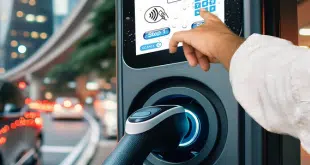The San Francisco Bay Area’s Metropolitan Transportation Commission next week will consider a $461 million contract with Cubic Transportation Systems to modernize the Clipper fare-payment system used by 22 separate transit agencies in the region.
The upgrade will retain the closed-loop Clipper card that uses near-field communication for contactless fare payments. But it will include a new mobile app for closed-loop contactless payments with a virtual Clipper card, and allow riders to reload their transit accounts.
At least at the get-go, however, the upgraded system will not support so-called open-loop payments in which passengers use digitized general-purpose credit or debit cards in smart phones or physical contactless payment cards for tap-and-go payments.
An MTC spokesperson, however, tells Digital Transactions News by email that the new app can accommodate the Apple Pay and Google Pay mobile wallets, and third-party software developers “could use the … system’s application programming integration [open API] to add contactless capability, and any number of other functions, to the system.”
Cubic Transportation Systems, a unit of San Diego-based Cubic Corp., said in a press release that the new system will be made “open-payment ready for the acceptance of contactless bank cards and mobile-wallet technologies as acceptance grows in the U.S. payments market, should the region decide to pursue this option.”
Open-loop payments are planned in New York, Boston, and Philadelphia as those cities upgrade their fare systems over the next few years, and Chicago already has them as part of its contract with Cubic. But the Utah Transit Authority, a pioneer in open-loop payments, recently dropped them because of very low rider usage.
In any case, the upgrade will give Bay Area riders a number of improvements. For example, online reloads of Clipper cards do not give the rider immediate funds availability; the new system will. The system will be more compatible with transit programs operated by employers and colleges and universities, and also will integrate with other transportation providers such as bike-share and para-transit operators, the MTC said.
The 22 agencies that use Clipper provide 21 million bus, rail, light-rail, cable car, and ferry trips monthly. Each agency, everything from the BART heavy-rail line to San Francisco’s Muni, which operates the city’s famous cable cars, sets its own fare prices. The contract will involve updating equipment in hundreds of stations and on more than 3,500 buses and light-rail vehicles; replacing 6,875 payment validators on buses and in stations and terminals; and upgrading more than 600 ticket machines, according to the MTC.
Clipper launched in 2006 under the TransLink name, but its technology was designed in the 1990s, the MTC says. “Aging equipment and new technologies have made the current card-based system increasingly obsolete, lacking features such as mobile-phone integration or the ability to immediately accommodate add-value transactions made online or by phone,” the agency said in a release.
Cubic, which besides Chicago has the fare contracts for New York, Boston, London, Vancouver, British Columbia, and other major cities worldwide, was the only bidder on the Bay Area contract. “MTC went to great lengths to engage potential bidders throughout the process, and that the emergence of just a single bid came as something of a surprise and a disappointment,” the spokesperson says.
The proposed contract, which will run through 2032, has won lower-level approvals and is scheduled to be considered by the MTC’s full board Sept. 26. The first operational improvements are set for next year, and authorities expect the mobile app to debut in 2020.
In addition to the $461 million in capital and operations costs, related costs not covered include operation of the Clipper customer-service center, mobile carriers’ fees, debit and credit card processing fees, and commissions to Clipper’s retailer partners, according to the spokesperson. The MTC’s staff projects those additional costs to total $170 million, bringing the grand total to $631 million.






